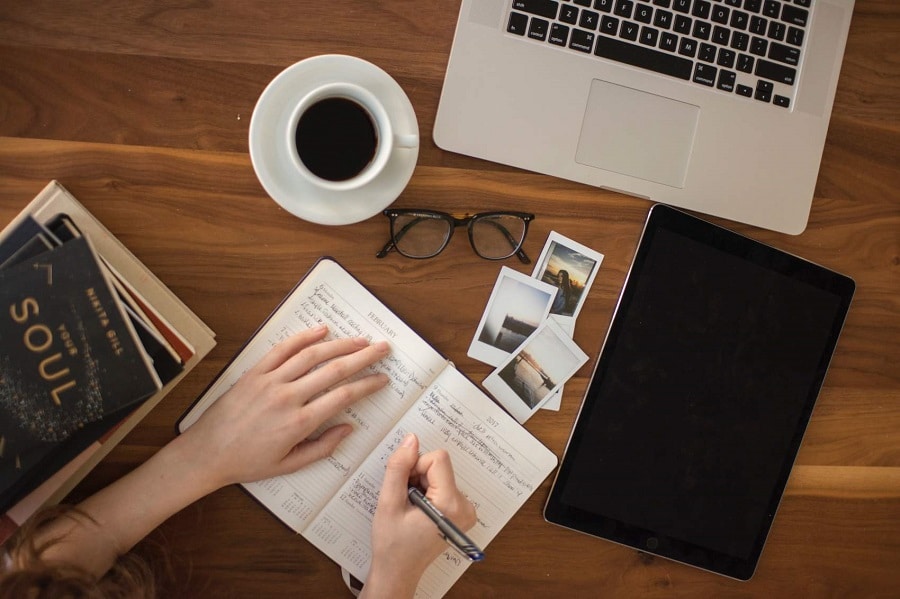Coffee has been proven to enhance cognitive function and increase alertness, making it the perfect study companion. But with so many options, how do you choose the best coffee for your study session? Read on to learn more about coffee for studying.
Are you a student struggling to stay alert and focused during those long study sessions? Coffee can be your secret weapon. Not only does it provide the caffeine boost that helps keep you awake, but it also has numerous other benefits to help improve focus and memory retention.
This comprehensive guide will explore everything you need to know about using coffee as a study aid. From the science behind it to tips on when and how much to drink, we have all the information you need to become a coffee-sipping studying machine. Keep on reading.
How Does Coffee Help With Studying?

Coffee has been shown to improve task performance, working memory, and reaction time. Researchers believe that the benefits of coffee are due to its caffeine content. Caffeine is a central nervous system stimulant that increases alertness and wakefulness.
It is also thought to improve task performance by enhancing dopamine release and blocking adenosine receptors. Dopamine is a neurotransmitter that plays a vital role in motivation and reward-seeking behavior. Blocking adenosine receptors prevents the inhibitory effects of adenosine on the brain, which results in increased alertness.
Types of Coffee for Studying
Many types of coffee can be beneficial for studying. The best coffee for studying is typically espresso, Cappuccino, and latte.
- Espresso is a concentrated form of coffee that contains a lot of caffeine, making it perfect for drinking before an exam or test.
- Cappuccino: A classic cappuccino is a perfect pick-me-up for a long night of studying. The Cappuccino provides much-needed energy, while the milk and foam help keep you full and focused.
- Latte: A latte is a great choice if you’re looking for a coffee to help you power through your studies.
How Coffee Affects the Body?

Coffee is a central nervous system stimulant; its chief active ingredient is caffeine. When you drink coffee, the caffeine is absorbed into your bloodstream and travels to your brain. There, it blocks adenosine, a neurotransmitter that promotes sleep. This blockage of adenosine signals the body to release adrenaline.
Adrenaline is known as the “fight-or-flight” hormone because it gives you energy and focuses on responding to danger. Adrenaline can improve mood, vigilance, and reaction time in small doses, such as those in a cup of coffee. The effects of coffee on the body are mainly due to the effects of caffeine.
How Coffee Affects the Mind?
Studies have found that coffee can help improve task performance and memory recall. However, it's essential to remember that everyone reacts differently to caffeine. While some people may find that coffee helps them focus and perform better on tasks, others may find it makes them feel jittery or anxious. It's essential to experiment and find out what works best for you.
Additionally, it's essential to be aware of the potential side effects of caffeine. These can include increased heart rate, headaches, and difficulty sleeping. Limiting your intake or avoiding coffee is best if you're sensitive to caffeine or tend to get anxious quickly.
Should You Drink Coffee While Studying?
Yes, some people find that coffee helps them focus and stay awake while studying, while others find it makes them jittery and prevents them from concentrating. If you're unsure whether coffee will help or hinder your studying, it might be worth doing a trial run to see how it affects you. Just make sure you don't drink too much coffee, as this can also lead to problems with concentration.
How to Make Strong Black Coffee for Studying?

If you're seeking a coffee to help you focus and get work done, look no further than black coffee. Black coffee is simple to make and can be tailored to your specific taste preferences. Follow these steps to make the perfect cup of black coffee for studying:
- Start with fresh, cold water. Bring your water to a boil and let it cool for about 30 seconds before pouring over your coffee grounds. This will ensure that your coffee is extracted correctly.
- Use two tablespoons of ground coffee per 6 ounces of water. You can adjust this ratio to suit your personal preferences.
- Pour the hot water over the grounds and stir gently to distribute the water evenly. Let the coffee steep for 4 minutes before removing the lid and stirring again.
- Place a filter over your serving mug and slowly pour the coffee into the filter, being careful not to disturb the grounds too much. Allow all of the liquid to drip through before removing the filter.
- Serve immediately and enjoy. You can add milk or sugar if desired, but remember that this will affect the taste and quality of your final cup of coffee.
Tips for Making the Most of Your Coffee While Studying
Like most students, you probably rely on coffee to help you get through long study sessions. Here are a few tips for making the most of your coffee while studying:
- Drink it black. Adding milk or sugar to your coffee can make it harder to focus since the extra calories can make you feel sluggish. Stick to black coffee for the best results.
- Please don't overdo it. A cup or two of coffee is usually all you need to stay focused. Drinking too much can have the opposite effect and make you feel jittery and anxious.
- Choose quality beans. Not all coffees are created equal! Opting for a high-quality bean will give you a richer, more flavorful cup of coffee that's easier on your stomach.
- Make it strong. If you struggle to stay awake, try making your coffee slightly more potent than usual. A little extra caffeine can go a long way.
Disadvantages of Coffee for Students

Coffee may help students stay awake to study for exams, but some disadvantages exist.
- Coffee is a diuretic, which means it can cause dehydration.
- It can also lead to jitters, anxiety, and restlessness.
- Too much caffeine can result in insomnia and difficulty concentrating.
Conclusion
Coffee for studying is a great way to help improve focus, concentration, and energy. It's important to note that too much coffee can have a detrimental effect on your health. That being said, adding caffeine to your study routine can be beneficial with the right dosage and timing. With these guidelines in mind, enjoy the caffeine boost, knowing you're making smarter choices when using coffee for studying.